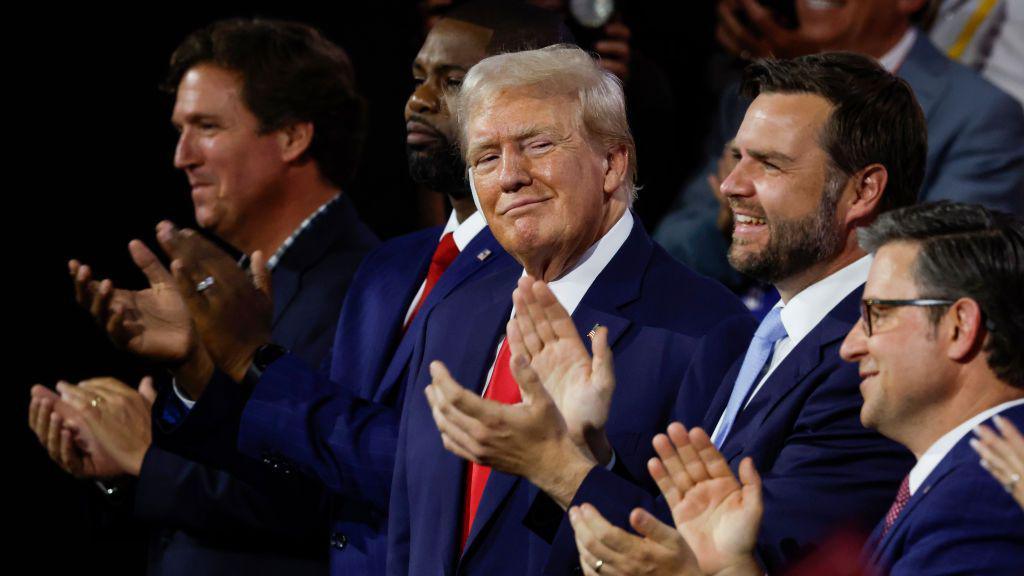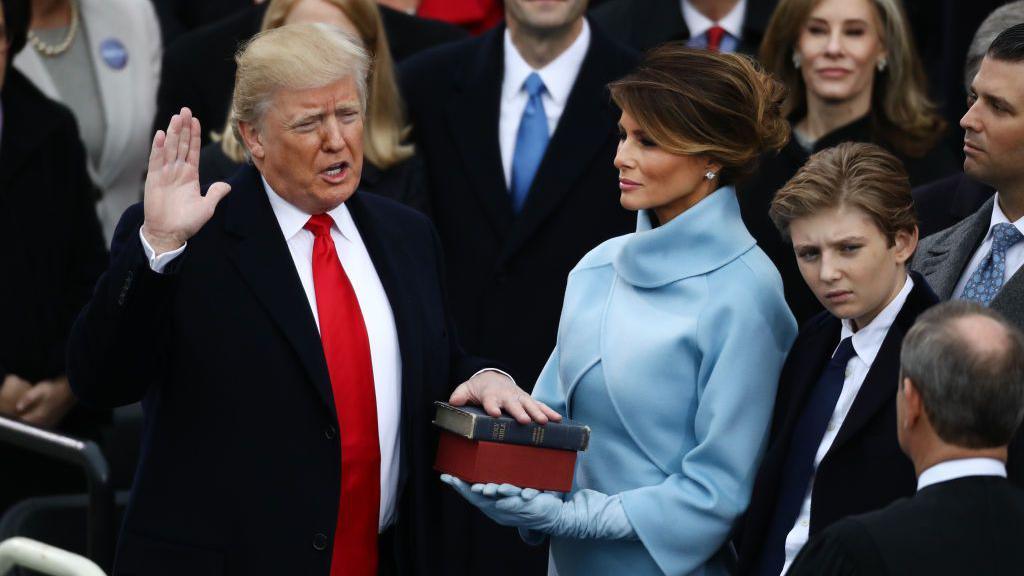Republicans win House in major boost for Trump's agenda

- Published
The Republican Party has achieved full control of the US government, after media projected wins for the party in a handful of close races in the House of Representatives.
Republicans won the majority in the Senate earlier this week, while Donald Trump won the race for the presidency.
The trifecta, last achieved at the start of Trump's first term in 2017, will give the President-elect significant authority to enact his agenda on the economy, immigration and other key issues.
It also leaves Democrats with less leverage to challenge policies they disagree with, though narrow margins mean Senate Republicans could still struggle to secure enough votes for some actions.
CBS News, the BBC's US partner, projects that House Republicans will have at least 218 seats and House Democrats will have at least 208 seats once a new congressional term begins in January.
A majority is achieved in the 435-seat chamber when a party wins 218 seats. CBS projects that the final number of Republican seats will likely fall between 220 and 222.
In the 100-seat Senate, Republicans will control 53 seats, while Democrats and Democratic-aligned independents will take 47 seats.
How large a majority Republicans will have in the House of Representatives remains to be seen.
Trump has since nominated some House members for top jobs in his administration, including Michael Waltz from Florida, who was named national security advisor, and Elise Stefanik from New York, who will serve as the next US ambassador to the United Nations. Removing them from the House means their seats will be vacant until special elections are called to replace them.
Still, the majorities in both chambers of Congress mean Trump will have widespread support and a smoother path to enact his agenda.
The President-elect has promised sweeping changes in his first 100 days in office, including the start of mass deportations of unlawful migrants in the US, the pardoning of some who stormed the Capitol on 6 January 2021, and rolling back environmental policies put in place by the Biden-Harris administration.
It also means there could be swift confirmation of presidential appointments – including cabinet nominees and judges. Trump-backed legislation is more likely to clear the legislative process with little opposition.
With the next mid-term elections set for 2026, Trump will enjoy at least two years of limited congressional oversight.
House Republicans are also expected to hold on to Trump ally Mike Johnson as Speaker of the House.
"Nobody worked harder than the speaker, so I think he had that room going in," Republican House member Tom Cole of Oklahoma told CBS on Wednesday. "I think [Trump] made it very apparent how much he appreciated all Mike Johnson had done."
Republicans regained the House majority from Democrats in 2022, though their term has been mired by infighting and a razor-thin majority that made consensus difficult to reach.
A slim majority could raise similar issues, forcing Johnson to rely on the support of Democratic votes to pass some legislation.
- Published29 January
